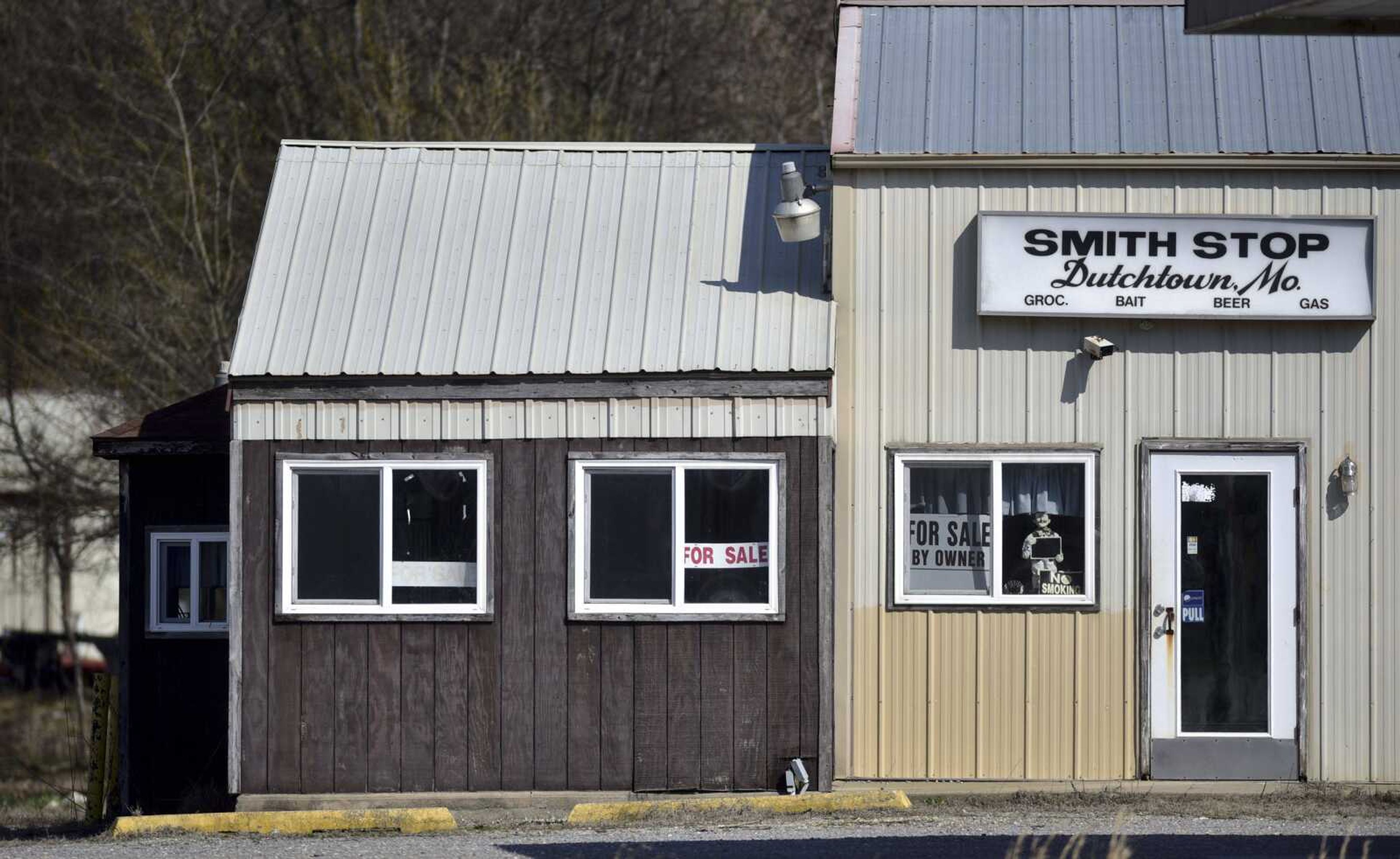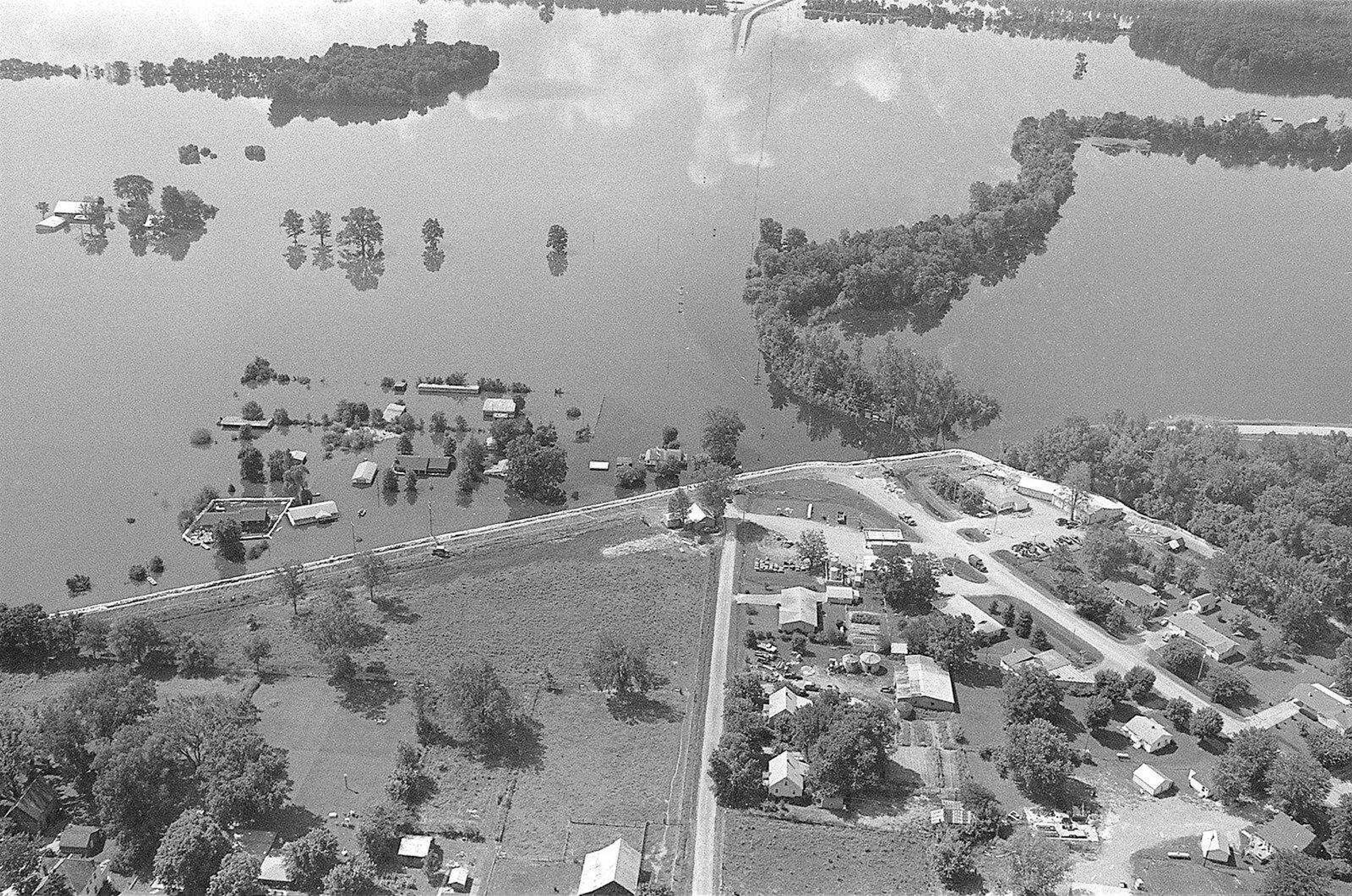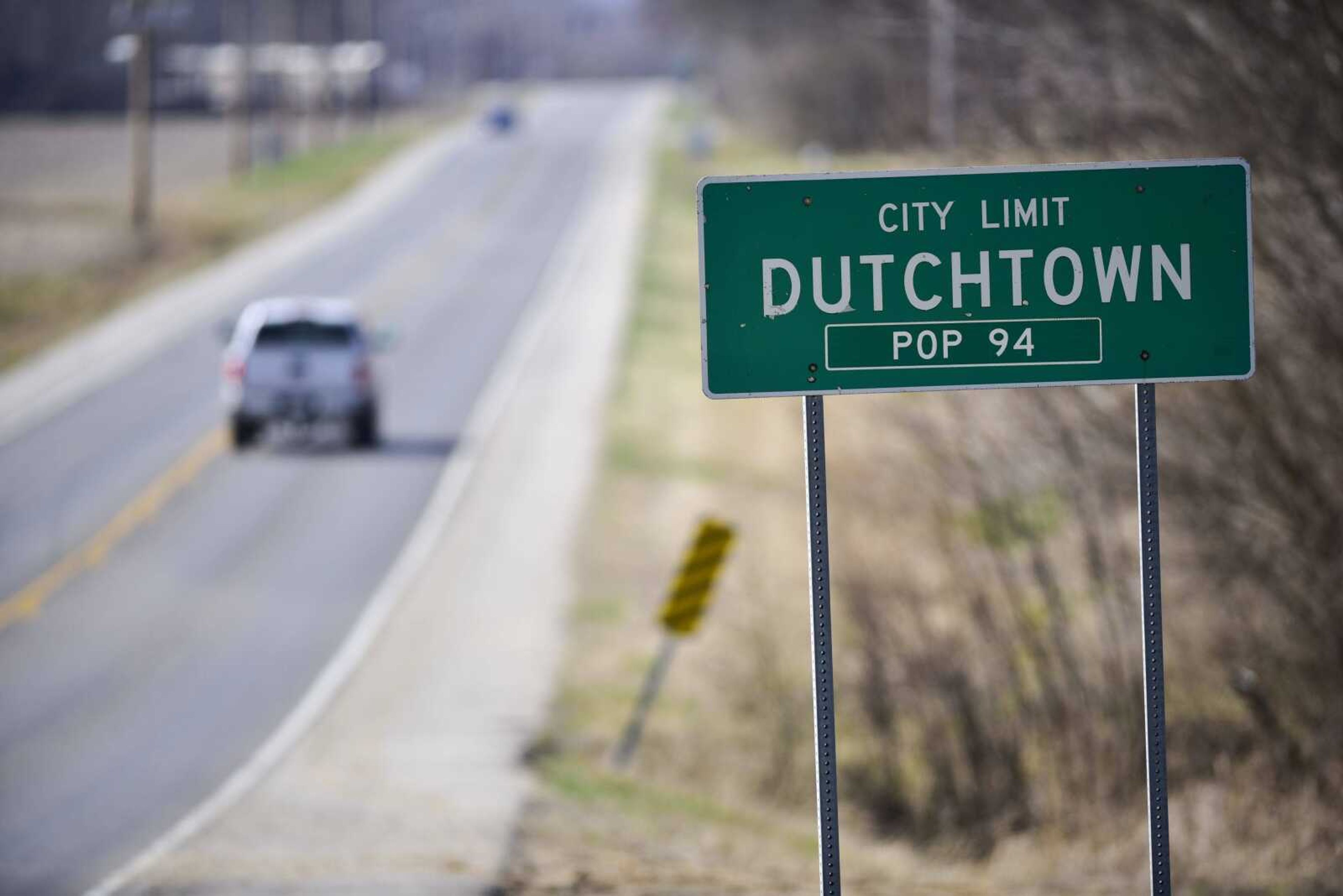RIP, Dutchtown: The village was disincorporated Thursday
The village of Dutchtown, age 20, died Thursday after a long battle with the Mississippi River. It was born in February 1998, officially incorporated by the Cape Girardeau County Commission, following a petition by residents in the area. It passed away peacefully Thursday as Cape Girardeau County Commissioners adopted an ordinance dissolving the village, effective immediately. ...
The village of Dutchtown, age 20, died Thursday after a long battle with the Mississippi River.
It was born in February 1998, officially incorporated by the Cape Girardeau County Commission, following a petition by residents in the area.
It passed away peacefully Thursday as Cape Girardeau County Commissioners adopted an ordinance dissolving the village, effective immediately. Trustee Ken Eftink, also the county's stormwater and floodplain manager, will finalize affairs, including turning over the village's assets to the county.
Eftink will remain trustee until all accounts are settled, he said at Thursday's meeting.
Dutchtown is survived by a used furniture business and a tiny population. It was preceded in death by a post office, a gas station and scores of people who left the area due to persistent flooding of the river and took advantage of government flood buyouts.

Dutchtown's residents endured repeated flooding, a rising price tag on the levee, and finally, the buyout offers became too attractive to turn down. The area was first settled by a Hessian soldier, Martin Rodner, and his family in 1801. Rodner owned a water mill on Hubble Creek, according to earlier reporting by the Southeast Missourian.
The Louisiana Purchase followed in 1803, and Missouri became a state in 1821.
According to reporting by the Southeast Missourian, Swiss and German settlers moved into the area in the mid-1830s, and called the area Spencer. Later, it became Dutchtown, a variation on the word "deutsch," meaning German.
The village's location near Hubble Creek and Castor River Headwater Diversion Channel, and close proximity to backwaters from the Mississippi River, meant continual problems with flooding.
In May 1973, the Southeast Missourian reported on volunteers battling rising floodwaters. Hubble Creek was overflowing its banks.

In the summer of 1993, the Great Flood set records across southeast Missouri, and Dutchtown was hit hard.
Another flood hit in 1995.
In 1998, the village incorporated in order to build a levee in defense against the Diversion Channel and other waterways. A 1-cent sales tax was started to help gather funds.
According to Eftink's Feb. 1 trustee's report, the village flooded in 2002, 2011, 2013, 2016 and 2017.
"The Village would barely recover from one flood event before another one hit," Eftink stated in the report.
The asking price of the levee kept rising, and the plan was dropped, Doyle Parmer, then emergency management coordinator for Dutchtown, told the Southeast Missourian in early 2014.
Later in 2014, the Village obtained a Federal Emergency Management Agency, or FEMA, flood buyout, allowing residents to sell their flooded homes and move out of the village, with the condition that the land be barred from future development.
The buyout offer was given to 15 homes, and 11 accepted, according to earlier reporting by the Southeast Missourian.
Those 11 properties totaled about 5.5 acres.
Dutchtown's population fell, until in 2017, when only about 50 people, 18 of whom were registered voters, remained in the village.
A petition signed by at least nine of those voters would, by Missouri law, have allowed the village to put a measure on the ballot to disincorporate.
But the petition failed to garner the required number of votes.
Concerned residents then approached the county commission, asking that the vacant lots be more closely maintained, as they were growing up in weeds and private residents were feeling the burden of maintenance.
But as long as Dutchtown was an incorporated village, that maintenance fell to the village leaders to arrange, Eftink told the Southeast Missourian.
Except there were no village leaders in 2017.
The last action by the Board of Trustees was taken in June 2015 as board members took the buyout and moved out of the village, according to Eftink's report.
The total cost of the FEMA buyout program was approximately $1,123,000, according to Eftink's report, with $795,000 coming from FEMA, $218,700 coming from the Missouri Community Development Block Grant program, and just over $108,000 total from Dutchtown.
The Little River Drainage District, or LRDD, will take title to the lots, according to Eftink.
The last year the Board voted to set a tax rate was 2014, and according to the County Collector's office, Dutchtown received just over $1,000 in real property taxes and nearly $600 in personal property taxes.
With disincorporation, the one-cent sales tax on the books in Dutchtown will be eliminated, Eftink said.
The historic records and documents of Dutchtown will be placed in the Cape Girardeau County Archive Center, according to Eftink's report.
At Thursday's meeting, Eftink said he believes everything is in order to proceed with disincorporation.
Eftink said he intended to send notice to between 20 and 25 agencies of Dutchtown's disincorporation, in accordance with Missouri state statute.
Approximately $105,000 is still in bank accounts under the Village of Dutchtown, Eftink said, and as trustee, he will transfer most of those assets to the county, in accordance with state law.
Any incoming revenue over the next month or two will need to be placed into an account, and Eftink said he will keep one open for that purpose.
Then, with the closing of the final account, Eftink's tenure as trustee will end.
There will be no services.
Southeast Missourian librarian Sharon Sanders contributed to this article.
mniederkorn@semissourian.com
(573) 388-3630
Pertinent location:
Dutchtown, Mo.
Connect with the Southeast Missourian Newsroom:
For corrections to this story or other insights for the editor, click here. To submit a letter to the editor, click here. To learn about the Southeast Missourian’s AI Policy, click here.











